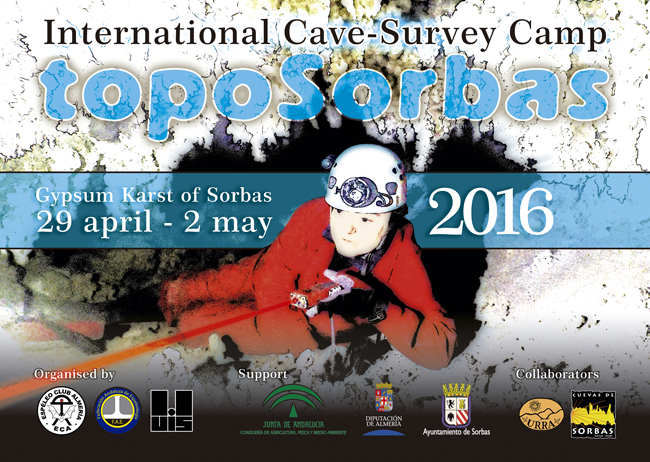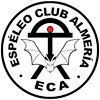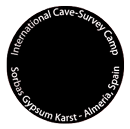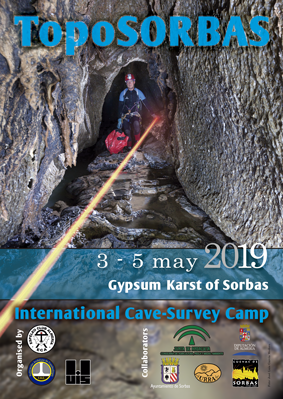The Sorbas Gypsum Karst Natural Park is situated in the town of Sorbas, between the “Sierra de Los Filabres” and “Sierra Cabrera” in the middle - east of the province of Almeria. It was declared a Natural Park by Act 2/1989 of 18 July, approving the inventory of Protected Natural Areas in Andalusia and is also a Special Protection Area for Birds [SPA (2002)], and is proposed as a Site of Community Interest. We are currently working on a campaign to declare it as an Underground Natural Park.
The site is an 2,375 hectares semi-desert area where the thousands-years action of rain waters on the gypsum of the depression of Sorbas has been creating this unique karst landscape with a network of over a thousand sinkholes in the surface and thousands of underground cavities wich are superimposed up to seven levels and connected for the most part. It contains 15% of the world cavities with global development over the 500 meters and the third, fourth and fifth deepest cave in gypsum. Unique surface forms, such as mounds, and a spectacular world of gypsum speleothems (stalactites, stalagmites, corals, rings, firs, gypsum balls, etc.) - some of them unique only in this karst - make this little underground world one of the geologicals jewels of Andalusia, which represents the ultimate example of karstification in gypsum in Spain and one of the most important in the world.
This beautiful gypsum environment should be a meeting point for the rational use of existing resources in the subsoil and the conservation of natural values. However, this dual objectives can not be realized without the existence of previous studies of details (speleological, hydrological, landscape, etc.) covering all the features present in this karst. Recently, there have been completed numerous studies in the field, aimed at the inventory and cataloging of the cavities, in collaboration with the Ministry of Environment and Andalusian Federation of Speleology. This work has resulted in the cataloging of more than 1500 cavities, identification of large complexes, caves and potholes disappeared by the unstoppable advance of the quarries (and others in imminent danger of disappearing), and observation of the hydroligical processes in the largest water underground systems.
In studies conducted in the Sorbas Gypsum Karst many exploration and topography camps have taken a place. Among the most notable may be mentioned: The Sorbas Gypsum Karst Pro-Defense Camp (1988), The Sorbas National Camp (1989), The 8 km Cueva del Agua (“Water Cave”) Camp (1990) and more recently: The Cueva del Agua (“Water Cave”) Survey Camp 2010. All of them with the participation of nearly a hundred cavers and survey experts from Spain, Europe and Canada. Thanks to the survey work has been achieved further enhance of the development of this unique system gypsum system.
The importance of information obtained, the great reception that this event was within the speleological groups and the desire to achieve conservation and protection of the Natural Park, for “Espelo Club Almeria” were the the organization an International Survey Camp in the Sorbas Gypsum Karst
The Sorbas Gypsum Karst Natural Park covers an area of 12 km2 approximately and contains within it a total of 1,500 cavities. The system of Cueva del Agua (“Water Cave”) which currently has a 8,925 meters of development is the most representative karst complex. It is among the longest development caves of the Andalusia and the largest gypsum cave in Spain. It is located in the Viñicas area, in the vast sinkhole of the Cueva del Agua, where they are 368 cavities inventoried and only a 34 of them are connected to the Cueva del Agua system.
The others cave systems, such as the ECA system or the Ruidos-Kas system, are also very important sources to be studied within the karst. There are sections of explored galleries covering hundreds of meters still to be surveyed. The implementation of these plans would be a valuable contribution to configure all the karst features.






